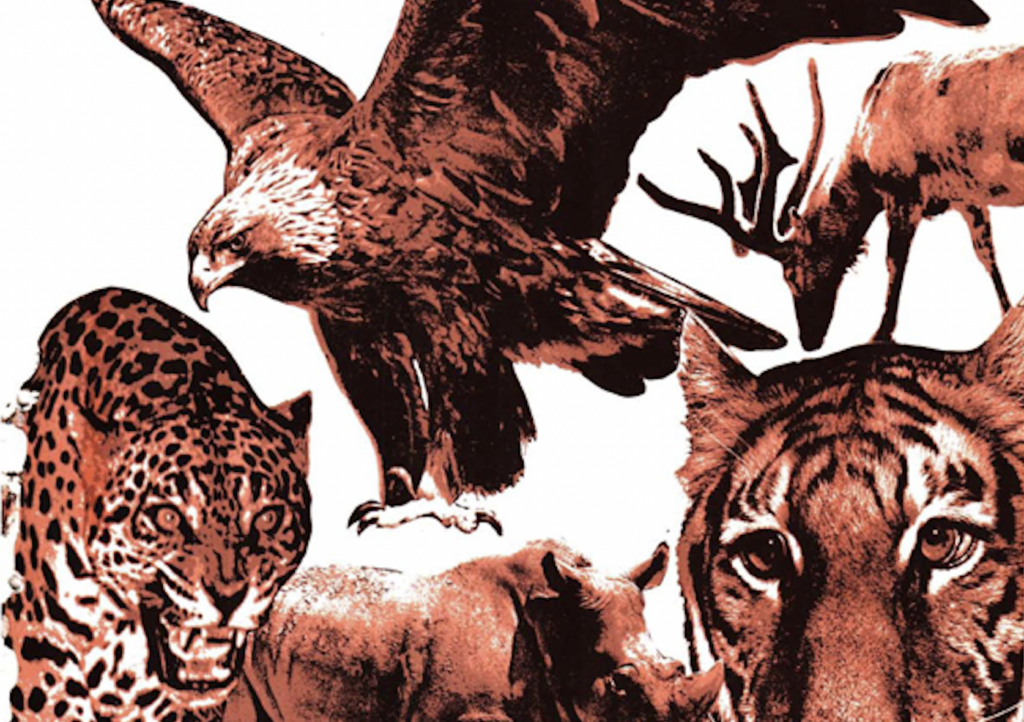Tomorrow’s fossils: Experimental embryology and endangered animal species in 1972
By Robert T. Francoeur | June 22, 2023
 This is a section of the cover of a 1972 Bulletin magazine issue that focused on the impact humans have on the environment.
This is a section of the cover of a 1972 Bulletin magazine issue that focused on the impact humans have on the environment.
Serving as one of the earliest examples of Bulletin commentary on the impact humans have on the environment, this story by Robert T. Francoeur appeared as the feature article in a 1972 magazine issue that took a deep dive into endangered animal species, the effects of pollution, gas warfare, and more.
This article appears here as part of our 2023 summer archive dive, which resurfaces a timeless Bulletin article each week.
______________________
Of the approximately 4,300 species of mammals living today, several hundred, possibly one out of ten, is a serious contender for the title of tomorrow’s fossil.
The Tasmanian wolf, a collie-sized marsupial, survived very happily in Australia until being brought close to extinction by exploring humans and their canine friends. Domesticated dogs and cats have driven the small, defenseless banded anteater in- to the extreme southwestern corner of Australia. Hunters using pitfalls have reduced the elusive giant sable antelope of Angola to a few hundred. The swift and graceful Ara- bian oryx which once ranged the whole Arabian peninsula is now down to less than 200 in a remote region of Oman. The California condor numbers about 40, and the monkey-eating eagle of the Philippines is probably less than 100. The Asiatic cheetah are fewer than 100 in Iran and may already be extinct in the wild. Also on the verge of extinction are the Sumatran rhinoceros which was estimated to number be- tween 100 and 170 in Cambodia, Thailand, Borneo, and Sumatra five years ago …
To continue reading this article, visit our online archive here.
Subscribe to the Bulletin’s premium magazine to access over 75 years of authoritative reporting on existential threats.
Together, we make the world safer.
The Bulletin elevates expert voices above the noise. But as an independent nonprofit organization, our operations depend on the support of readers like you. Help us continue to deliver quality journalism that holds leaders accountable. Your support of our work at any level is important. In return, we promise our coverage will be understandable, influential, vigilant, solution-oriented, and fair-minded. Together we can make a difference.
Keywords: climate change, environment, history, natural history
Topics: Climate Change














